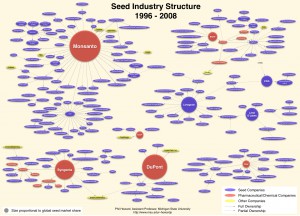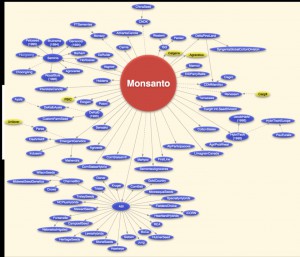Hold on to your hats, this will make up for lost time. Hope you all had a nice break, Happy New Year!
- Video on the “Night Queen of Chilika.” Not what you think: it’s a buffalo breed.
- Indian jury calls for more work on local crops. Wait, a jury?
- Indian NGO says “[n]ational sovereignty over genetic resources could undermine food security.” Wow.
- AgricultureBridge “connect[s] practitioners to each other and to leading universities to help resolve some of the world’s most pressing questions in agriculture and conservation.” We’ll see.
- Big year for Kew: many new species described, including CWRs; many blogs launched; much geo-referencing done.
- Not agrobiodiversity, but speaking of geo-referencing and the like…
- Cypriot no man’s land good for biodiversity. Including crop wild relatives? I think we should be told.
- Chinese farmers struggle to adapt to climate change. Plenty more of this kind of thing out there, no doubt. Like this, for instance?
- And yet list of “climate change icons” only includes one plant. Something should be done.
- Chinese researchers talk about animal genetic resources conservation. If you’re frustrated at missing that, get ready for Europeans talking about the Mediterranean pig. But meanwhile, get to grips with the FAO Animal Genetic Resources Information Bulletin.
- Speaking of FAO info bulletins, feast on the ones on non-wood forest products and plant breeding.
- A rose is a rose is a rose. But for the Romans?
- Carcinogenic bark of endemic Pohnpei cinnamon not bad for you after all. If you boil it.
- “It is ironic that the despised grape Gouais blanc was not just a parent for several of the world’s best-known and most important varieties, such as Chardonnay and Gamay noir, it was the maternal parent, providing additional DNA and potentially determining important characteristics of the offspring.” Oh, so, so ironic.
- Natural rubber from weird dandelion? No, really, all kinds of boffins are working on it.

